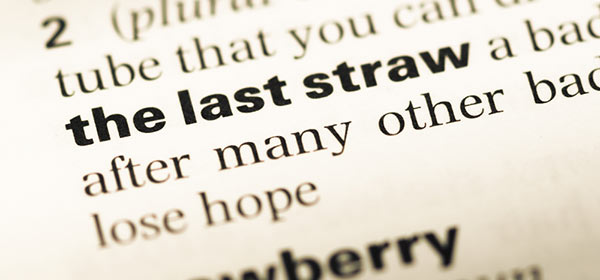When we’ve had enough of something, we might declare with exasperation, “this is the last straw!” What we mean is that after a series of difficult events, this final small burden makes it all unbearable.
But who said it first, and what does straw have to do with reaching your limit?
The full version of this idiom is ‘the last straw which breaks the camel’s back’. You’d be right in thinking there’s an Old Testament quality about it, and while etymology researchers have found many references to camels and straw in the Bible, they haven’t found anything directly linked to the ‘last straw’.
The earliest citation of the phrase has been found in The Edinburgh Advertiser, from May 1816:
“MR. BROUGHAM remarked, that if it [a tax on soap] were only 3d. a head, or 4d. and 5d. upon the lower orders, yet straw upon straw was laid till the last straw broke the camel’s back.”
This phrase also has an uncanny resemblance to an old proverb, which says, ‘it’s the last feather that breaks the horse’s back’. It can also be found in The Edinburgh Advertiser, from November 1829:
“It may be very well for Mr. O’Connell, in his own exultation of heart, to ascribe the success of the Catholic Relief Bill to his ‘agitation;’ but the fact is, that ‘agitation’ was only the cause of Emancipation in the same sense in which it is true that the last feather breaks the horse’s back.”
The Southport American, from October 1843, also has an early reference to the idiom:
“And finally, the ‘feather which breaks the camel’s back’ having been added to Sir Walter’s burthen, he was struck down by paralysis, and after lingering a few months, was gathered to his fathers.”
So, while the origin of this particular idiom is not entirely clear, we can see that from its earliest use, the meaning has remained unchanged. And there’s something charming about knowing that 140 years ago, people were using some of the same phrases we use today, for entirely the same purposes. Hopefully, no camels or horses were harmed in the making of this idiom.
Related articles:
Idiom origin: spick and span
What does OK really mean?
Origin of ‘a grain of salt’

